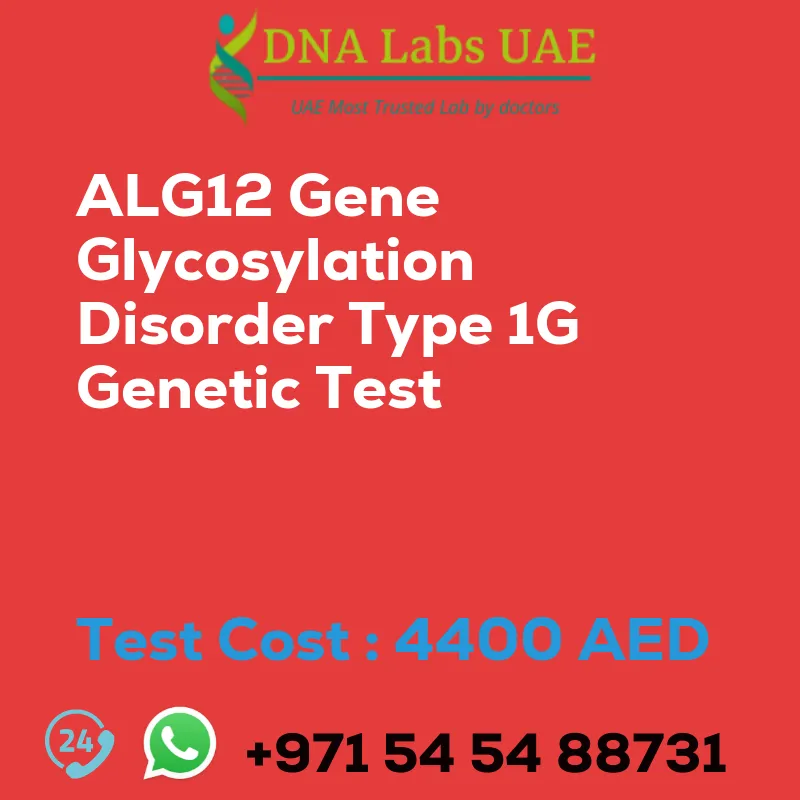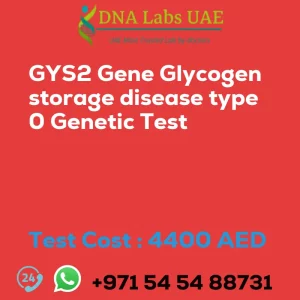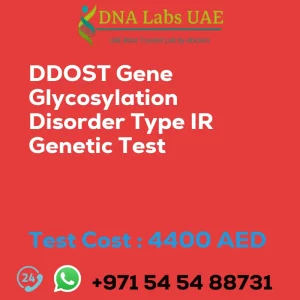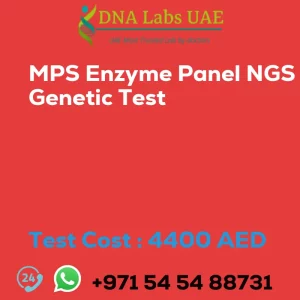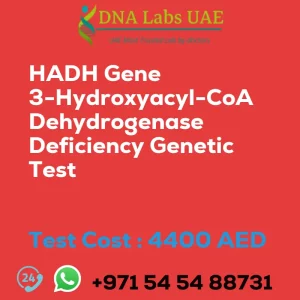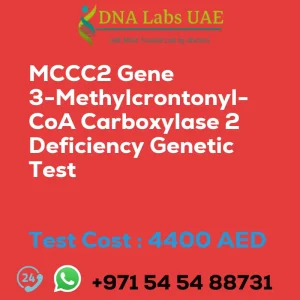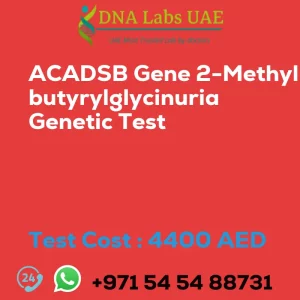ALG12 Gene Glycosylation disorder type 1G Genetic Test
Components: ALG12 gene glycosylation disorder type 1G genetic test
Price: 4400.0 AED
Sample Condition: Blood or Extracted DNA or One drop Blood on FTA Card
Report Delivery: 3 to 4 Weeks
Method: NGS Technology
Test type: Metabolic Disorders
Doctor: General Physician
Test Department: Genetics
Pre Test Information: Clinical History of Patient who is going for ALG12 Gene Glycosylation disorder type 1G NGS Genetic DNA Test. A Genetic Counselling session to draw a pedigree chart of family members affected with Glycosylation disorder type 1G.
Test Details: ALG12 gene glycosylation disorder type 1G is a rare genetic disorder that affects the glycosylation process in the body. Glycosylation is the process by which sugar molecules are attached to proteins and lipids, forming glycoproteins and glycolipids. This process is important for the proper functioning of many proteins in the body.
The ALG12 gene provides instructions for making an enzyme called dolichyl-P-Man:Man(7)GlcNAc(2)-PP-dolichol-alpha-1,6-mannosyltransferase. This enzyme is involved in the glycosylation process, specifically the addition of mannose sugars to glycoproteins. Mutations in the ALG12 gene can disrupt the glycosylation process, leading to glycosylation disorder type 1G.
This disorder can result in a wide range of symptoms, including developmental delay, intellectual disability, seizures, facial dysmorphism, and other physical abnormalities.
NGS (Next-Generation Sequencing) genetic testing is a type of genetic test that uses advanced sequencing technologies to analyze multiple genes simultaneously. In the case of ALG12 gene glycosylation disorder type 1G, NGS genetic testing can be used to identify mutations or variations in the ALG12 gene that may be responsible for the disorder.
By identifying these genetic variations, NGS genetic testing can provide a definitive diagnosis for individuals with suspected ALG12 gene glycosylation disorder type 1G. This can help guide medical management and treatment options for affected individuals and their families.
| Test Name | ALG12 Gene Glycosylation disorder type 1G Genetic Test |
|---|---|
| Components | |
| Price | 4400.0 AED |
| Sample Condition | Blood or Extracted DNA or One drop Blood on FTA Card |
| Report Delivery | 3 to 4 Weeks |
| Method | NGS Technology |
| Test type | Metabolic Disorders |
| Doctor | General Physician |
| Test Department: | Genetics |
| Pre Test Information | Clinical History of Patient who is going for ALG12 Gene Glycosylation disorder type 1G NGS Genetic DNA Test A Genetic Counselling session to draw a pedigree chart of family members affected with Glycosylation disorder type 1G |
| Test Details |
ALG12 gene glycosylation disorder type 1G is a rare genetic disorder that affects the glycosylation process in the body. Glycosylation is the process by which sugar molecules are attached to proteins and lipids, forming glycoproteins and glycolipids. This process is important for the proper functioning of many proteins in the body. The ALG12 gene provides instructions for making an enzyme called dolichyl-P-Man:Man(7)GlcNAc(2)-PP-dolichol-alpha-1,6-mannosyltransferase. This enzyme is involved in the glycosylation process, specifically the addition of mannose sugars to glycoproteins. Mutations in the ALG12 gene can disrupt the glycosylation process, leading to glycosylation disorder type 1G. This disorder can result in a wide range of symptoms, including developmental delay, intellectual disability, seizures, facial dysmorphism, and other physical abnormalities. NGS (Next-Generation Sequencing) genetic testing is a type of genetic test that uses advanced sequencing technologies to analyze multiple genes simultaneously. In the case of ALG12 gene glycosylation disorder type 1G, NGS genetic testing can be used to identify mutations or variations in the ALG12 gene that may be responsible for the disorder. By identifying these genetic variations, NGS genetic testing can provide a definitive diagnosis for individuals with suspected ALG12 gene glycosylation disorder type 1G. This can help guide medical management and treatment options for affected individuals and their families. |

